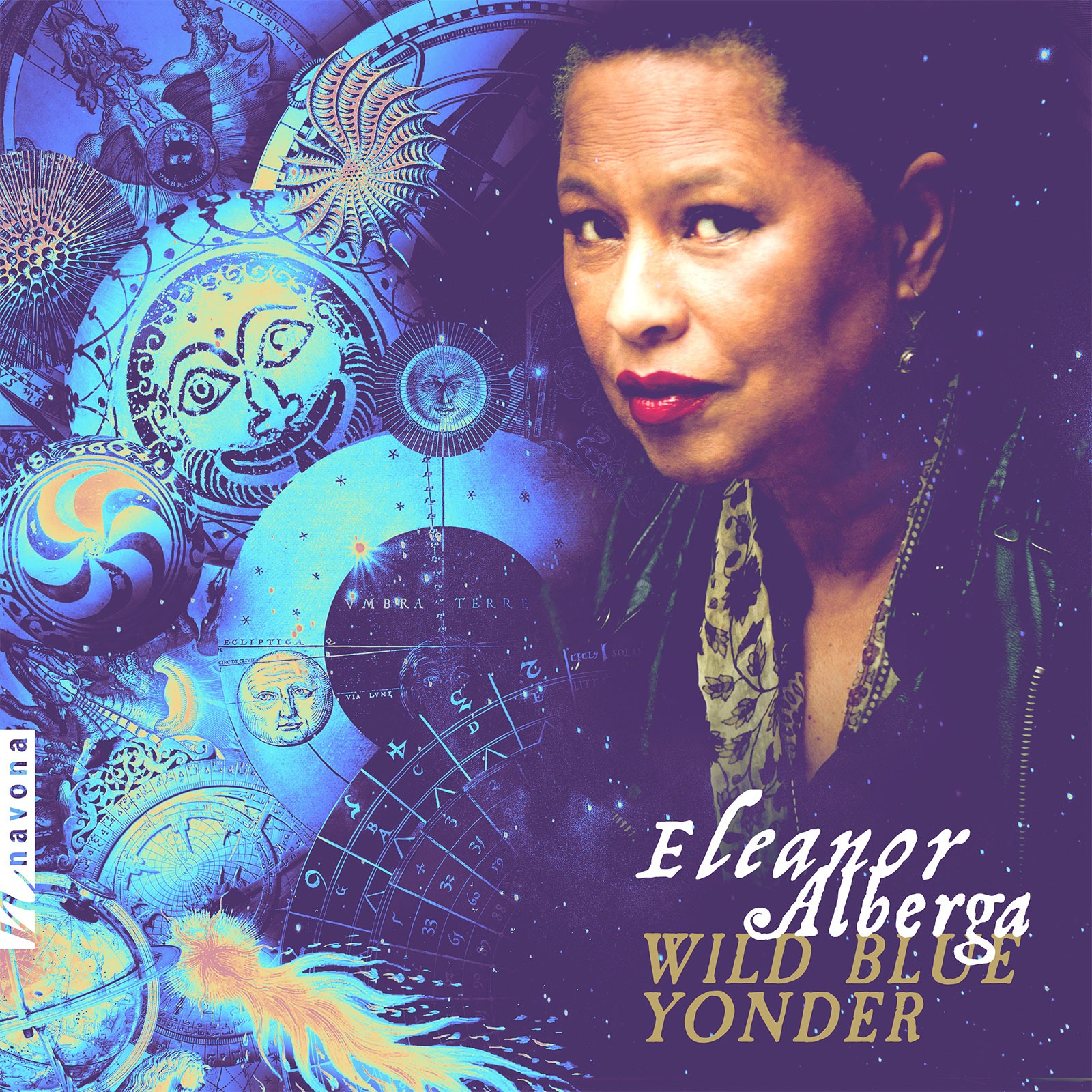Wild Blue Yonder
Eleanor Alberga composer
Eleanor Alberga explores the whole gamut of the human experience in WILD BLUE YONDER, an equally diverse and coherent set of four contemporary chamber music pieces. While written over the course of twenty-two years, these pieces burst the limits of both space and time. No-Man’s-Land Lullaby reaches back over a century to World War I; Shining Gate of Morpheus enters the realm of the mystical; Succubus Moon explores the dark sides of the human psyche; and The Wild Blue Yonder offers a glimpse into a world that is at once alien and wonderful. Undauntedly, positively unsettling album; perfect listening for these unsettling times and a worthy addition to the much hailed album of Alberga’s three string quartets from 2019.
Listen
Stream/Buy
Choose your platform
"Dreams, the subconscious and contemplation of our fragile human state are ever-present, the unfurling emotions and underlying concepts powerfully expressed"
Track Listing & Credits
| # | Title | Composer | Performer | |
|---|---|---|---|---|
| 1 | No-Man's-Land Lullaby (Live) | Eleanor Alberga | Thomas Bowes, violin; Eleanor Alberga, piano | 10:16 |
| 2 | Shining Gate of Morpheus | Eleanor Alberga | Richard Watkins, horn; Ensemble Arcadiana | Thomas Bowes, violin; Oscar Perks, violin; Andres Kaljuste, viola; Hannah Sloane, cello | 13:12 |
| 3 | Succubus Moon | Eleanor Alberga | Nicholas Daniel, oboe; Ensemble Arcadiana | Thomas Bowes, violin; Oscar Perks, violin; Andres Kaljuste, viola; Hannah Sloane, cello | 14:19 |
| 4 | The Wild Blue Yonder (Live) | Eleanor Alberga | Thomas Bowes, violin; Eleanor Alberga, piano | 11:45 |
NO-MAN’S-LAND LULLABY
Recorded Live on December 2, 1997 at Studio 1, University of Surrey in Guildford, United Kingdom
Recording Session Producer Harriet Sims
SHINING GATE OF MORPHEUS & SUCCUBUS MOON
Recorded October 7-8, 2019 at Wyastone Concert Hall in Monmouth, United Kingdom
Recording Session Producer & Editing Stephen Frost
Session Engineer Simon Eadon
THE WILD BLUE YONDER
Recorded Live on November 22, 1996 at St John’s, Smith Square, London, United Kingdom
Recording Session Producer Tony Harrison
Recording Session Engineer Mike Clements
Artist photos Ben Ealovega
Executive Producer Bob Lord
Executive A&R Sam Renshaw
A&R Director Brandon MacNeil
A&R Danielle Lewis, Chris Robinson, Jacob Smith
VP, Audio Production Jeff LeRoy
General Manager of Audio & Sessions Jan Košulič
Audio Director Lucas Paquette
VP, Design & Marketing Brett Picknell
Art Director Ryan Harrison
Design Edward A. Fleming
Publicity Patrick Niland, Sara Warner
Artist Information
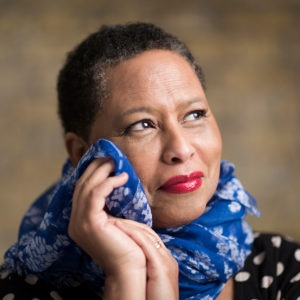
Eleanor Alberga
Born 1949 in Kingston, Jamaica, Alberga decided at the age of five to be a concert pianist. Five years later she was composing works for the piano. In 1968 she won the biennial Royal Schools of Music Scholarship for the West Indies, which she took up in 1970 at the Royal Academy of Music in London, studying piano and singing. But a budding career as a solo pianist — she was one of three finalists in the International Piano Concerto Competition in Dudley, UK in 1974 — was further augmented by composition with her arrival at The London Contemporary Dance Theatre in 1978. Under the inspirational leadership of its Artistic Director, Robert Cohan, she became one of the very few pianists with the deepest understanding of modern dance and her company class improvisations became the stuff of legend.
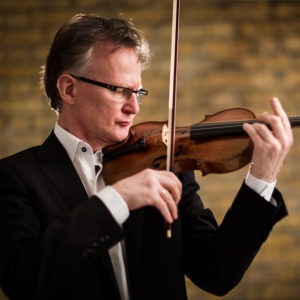
Thomas Bowes
Thomas Bowes is one of the United Kingdom’s finest violinists. He is very active in the realm of cinema, and millions have heard him on the soundtracks of his 200+ film credits. Most recently he was featured as the solo violinist in Alexandre Desplat’s score for Guillermo del Toro’s award-winning stop-motion film Pinocchio.

Nicholas Daniel
Nicholas Daniel has long been acknowledged as one of the world’s great oboe players, and is one of Britain’s best known musicians. In a distinguished career that began more than four decades ago he has become an important ambassador in many different musical fields, and has significantly enlarged the repertoire for his instrument with the commissioning of hundreds of new works.
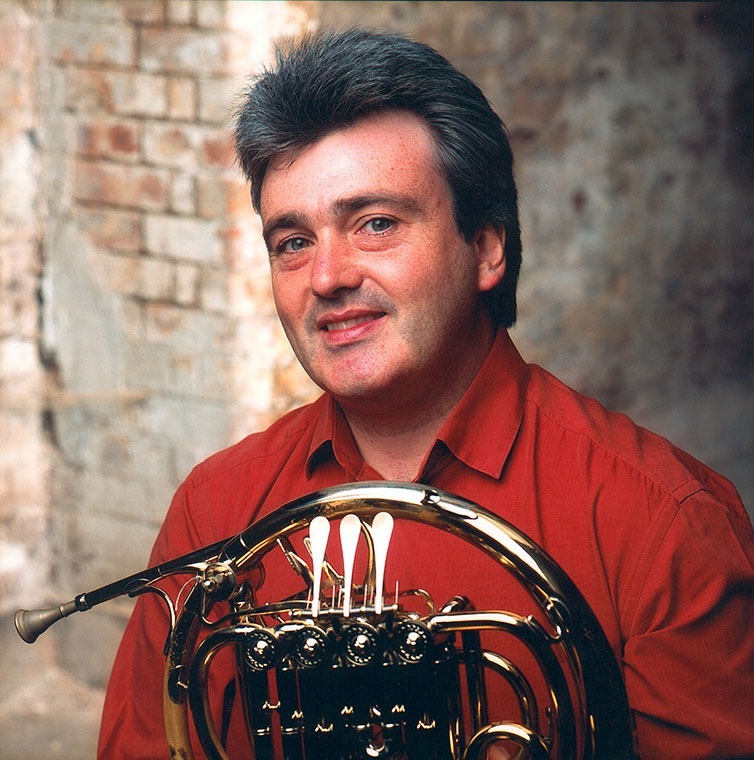
Richard Watkins
Richard Watkins was the Philharmonia Orchestra’s principal horn for 12 years, and is currently a member of the Nash Ensemble and a founding member of London Winds. He has appeared at many of the world’s most prestigious venues in the U.K., Europe, and the U.S., and has worked with conductors including Carlo Maria Giulini, Wolfgang Sawallisch, Esa-Pekka Salonen, Leonard Slatkin, Giuseppe Sinopoli, Gennady Rozhdestvensky, Vasily Petrenko, Andrew Davis, and Mark Elder.
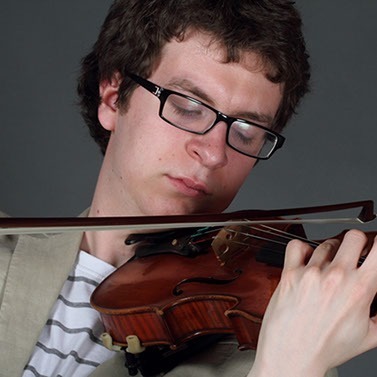
Oscar Perks
Oscar Perks enjoys a varied career as a violinist and chamber musician. Having started playing the violin at the age of five, Perks was awarded a place at the Yehudi Menuhin School where he studied with Hu Kun and Simon Fischer. He went on to read music at Gonville and Caius College, Cambridge, where he studied composition with Robin Holloway. He then gained his masters at the Royal College of Music under Lutsia Ibragimova.
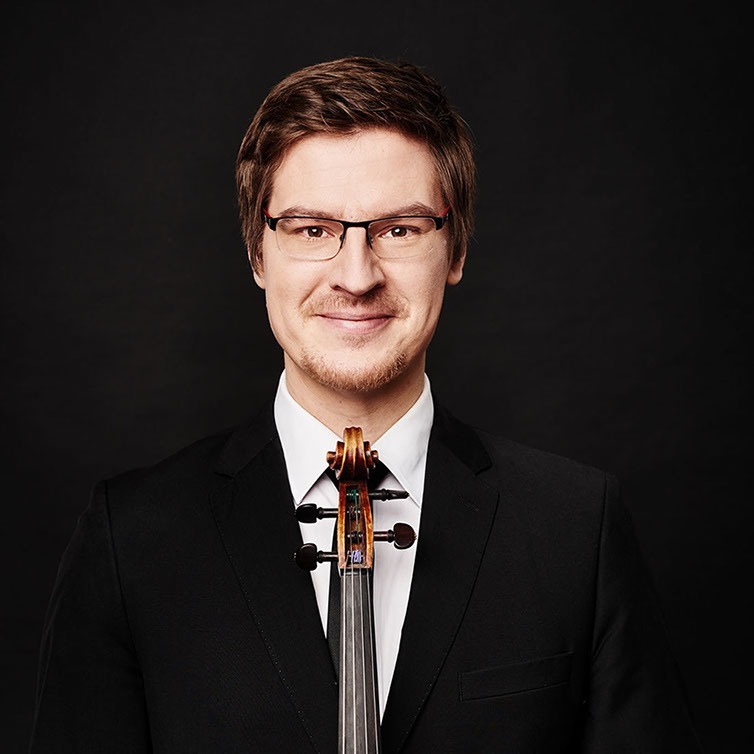
Andres Kaljuste
Estonian violist, violinist, and conductor Andres Kaljuste is described by maestro Paavo Järvi as “blessed with trademark instinctive musicianship, a sensitive approach to sound and an ability to form an easy and natural bond with other musicians.”
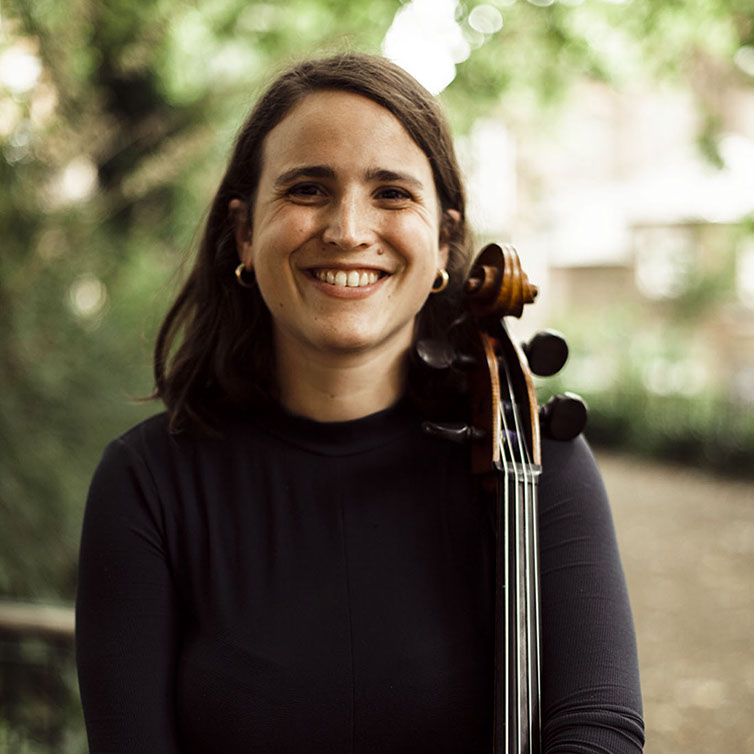
Hannah Sloane
A graduate of the Juilliard School, cellist Hannah Sloane enjoys an international career centered upon chamber music. She has participated in Thy, Domaine Forget, Lewes, Wye Valley, Arcadia, Taos and Kneisel Hall Chamber Music Festivals and is a founding member of the Eusebius Quartet. Formed in 2016, the Eusebius Quartet has been hailed as “excellent” by the Sunday Times for their “clarity and unity of thought.” Finalists in the 2018 Royal Overseas League, the quartet has been in residence at numerous festivals around the UK, as well as regularly performing live on BBC Radio 3’s In Tune. Their debut recording featuring the chamber music of Eric Korngold will be released by SOMM Recordings in July 2021.
Notes
At the time of writing the world is in turmoil. The COVID-19 pandemic has cut massive swathes through conventional music-making as well as all sorts of hitherto taken-for-granted human activity. It has also forced those of us living lives of relative comfort and material safety into a more direct encounter with our mortality and has revealed more clearly what was always there—the fragility of our existence.
This album was planned to have a different shape, and two larger scale chamber works had to be replaced with two live performances of violin and piano works taken from our archive. But far from being a “make do” situation, this has turned out to create something rather cohesive—a kind of ongoing conversation with our existential doubts, fears, and hopes.
As the whole album took shape it became clear that together this particular grouping of four works can suggest a kind of long stare at the outer reaches of our shared human condition.
Of the four works on this album, three are specifically to do with the world of sleep and dreams. The fourth—what we decided upon as the title track of this grouping—is a kind of bringing together of those aspects of our self-awareness that tilt us toward the very edge of our existence. Listened to without a break, the album can be heard as a journey of several encounters with this region—its demons, its comforters, its guardian angels, as well as its more impish spirits.
We start on the battlefields of World War I in the place known as no-man’s-land, and after its apparently peaceful opening, episodes of fear, deathly anticipation, and “going over the top” into battle, we join those abandoned to die in this place. From here we are beckoned into the world of dreams by Morpheus, god of dreams and sleep, and are allowed several brightly lit visions. We then move into a world of darkness and sexualized horror with Succubus, though just as things seem too much to bear, we are given a glimpse of moonlight and offered a hint of redemption. Finally, The Wild Blue Yonder is a release into a crazy adventure—and into places unknown and beyond.
— Thomas Bowes, November 2020
